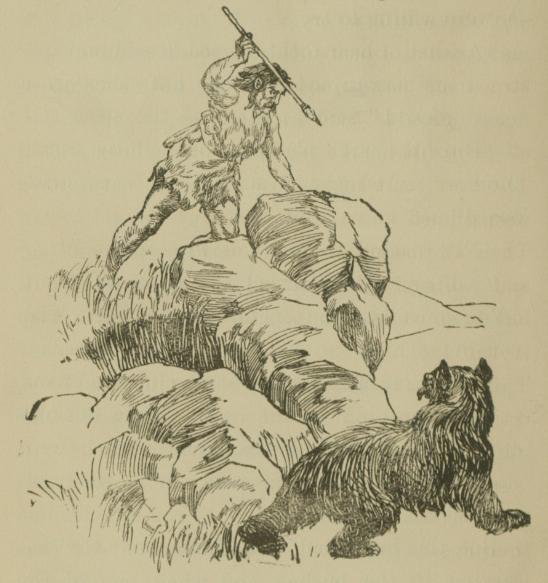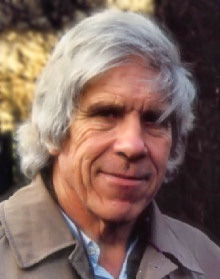K Marx
In celebration of the 149th publishing day of Capital Vol I, I want to talk about something Marx never did. But let's approach it through him anyway. Let's start with a highly simplified version of Marx's historical period idea. Do you remember what Capitalism is, kids? That's right boys and girls, Marx defined capitalism as when the means of production (capital goods) are owned privately. The owners are called, conveniently enough, "capitalists". Capitalists are that large and politically powerful class of people who make their money off just owning said capital - called "profit". This gives rise to a Prisoner's Dilemma: if you - the capitalist - have more capital than your brother, then you win and make more and the same for him. But if you both try to buy more capital, that just lowers the price and therefore the profit. Do you remember Marx's word for such a fatal Prisoner's Dilemma? That's right, kids, it was "contradiction"!
Now remember Marx's outline of current history (current to him): Today we have the Capitalist mode of production, which was born from the contradictions of the Feudal mode of production and whose own contradictions will give rise to the Socialist mode of production (which totally will have no Prisoner Dilemma contradiction, promise).
Charlemagne (Left) and his son Pippin (right, with the hunchback)
What was the Feudal mode of production? It was dominated by powerful landowners called "Lords" who made their living off just owning land - called "rent" instead of profit. The contradiction of Feudal mode of production was that the core of it was zero-sum, nobody could have more land without taking it from someone else. Meanwhile, capital can be accumulated (this is called "primitive accumulation of capital") until its returns are more powerful than the rent of the local prince. Once this is achieved, its only a matter of time - Marx claimed - until the Capitalists take over. Because primitive accumulation of capital is insanely slow, this takes a long time. The Feudal mode of production completely dominated the world (off an on, sometimes empires fail for reasons unrelated to growth) from the time Sargon Of Akkad overtook the city of Uruk in 2340 BC until about 1776 AD, when the first explicitly non-feudal country was founded, and partially dominated it until WWI or II wiped the last bits of Feudalism off the Earth.
Otto Leopold, Prince of Bismarck
Marx isn't usually given credit for some predictions related to this, which he should. As he developed and perfected his system, the crafty Otto von Bismarck and his allies were carefully crafting a German superstate dominated by the Prussian Junkers class of landed noblemen. Lords, not Capitalists. Marx's prediction that this state could not be stable due to misjudging the economic base was interesting and basically correct (though perhaps not accurate in detail). Instead, Marx is blamed for his prediction that class would become the basis for politics (instead of nation or dedication to transclass and transnational liberal concerns). It is fair to blame him for this, but incomplete.
Gilgamesh I, King of Uruk
What gave rise to the Feudal mode of production? Well, the Feudal mode of production was based on high level elites (Emperors/Popes) exploiting low level elites (Princes) who themselves exploited peasants. This evolved out the Asiatic mode of production (Uncle Karl was not terribly politically correct), in which there were only equally sized local lords vying over the rents of their neighbor's land. The contradiction here is obvious - there's a Prisoner's Dilemma over whether two neighboring countries should go to war. The end of this mode of production coincided approximately with the beginning of history.
Nobody, Just A Drawing. Chill.
The "Asiatic" mode of production itself evolves out of the truly ancient mode of production, in which there are basically only individuals that give to their families ("primitive socialism"). Hmm...
If this outline seems bad, there are four reasons. One is that I don't remember every detail of Marx's theory and it is nothing if not detailed. Two is that I deliberately left some things out that I do know, because they aren't important for what I want to talk about. The third is that Marx was human and his theory was not perfect. The fourth is that I'm a bad writer with unclear ideas.
George C Williams
Okay, now I will deliver on my promise to talk about something Marx never did. In 1966, George C Williams launched an attack on the idea of group selection in his book Adaptation And Natural Selection. I see this as essentially taking our models of natural selection seriously. Our models include things like stable gene frequency ratios and fitness returns to individual genes, but nothing like staying in a group for the good of one and all. Williams could use the example of the life-cycle: why do we, human beings, die? It must be an biological trait, but how can that have a positive return under natural selection. There are organisms that do not age. The reason is because natural selection does not work on "us", but on genes. It might be worth it to a gene to be in an ever changing bundle of individuals. One reason could be that this shields it from happenstance of being placed with bad genes that make the individuals sick. Another reason is that genes can have multiple functions and dysfunctions over the life-cycle.
W D Hamilton
If we abandon the unsound idea that evolution happens to individuals or groups, then how can groups exist at all? The first - but by no means sole - sound explanation came from W D Hamilton, who came up with "kin selection". The basic idea is that if a gene is in - or probably in - three individuals then it is in - or probably in - that gene's advantage to act the same in all three. The more related two individuals are, the less evolution can act on their differences. For instance, many of the cells in my body are almost perfectly related, so they all work together. That group of cells is "me", in a sense.
This isn't the only way groups can form. There are myriad helpful bacteria inside of me, maintaining my current state. I am not closely related to them, they are bacteria and I am a mammal. However, if they do good for me and I do good for them (by continuing eating). The genes within us maintain an equilibrium of reciprocal altruism - my immune system will exact harsh punishment to those bacteria that defect. This isn't "group selection" per se, all of this happens for the good of the genes and not those bacteria and I (we've never met). And it has to happen directly - there's no reciprocal altruism among individuals who can never meet (that's group selection). But it shows how careful one has to be.
Okay, but what does this have to do with Marx? The issue today is to go from the ancient mode of production up to the Feudal mode, past that into the Capitalist mode (and hey, can't forget the mysterious Socialist mode!), all while grounded in a psychology where brains are mostly made of fatty tissue. Where does the ultra-sociality of humans come from, if anywhere?
Mancur Olson
The above history, which I attributed to Marx, is actually much older. Thucydides, if he didn't expound it, could have. And there is certainly no shortage of explanations how one travels from one period to another. One very nice modern version of the trip from the primitive to the Asiatic mode of production is found in a paper by Mancur Olson. Start in a primitive mode of production. In this stage of history, people live in primitive communism based mostly on kin selection. They can also try to steal from each other, or band together to steal from a third party (reciprocal ... "altruism"). If everyone is in a roaming kinship band of hunter-gardener-thieves in a flat, undifferentiated world, they have no incentive to break out of this system. But lets say some gardens are better than others (maybe they're closer to water, maybe their land is more fertile). A stationary band of hunter-gardener-thieves has very different incentives than a roaming one. If the thieves are too nasty, people will abandon the garden for a worse one far from them. The thieves also have incentives to provide for a better garden (more to steal). These incentives are perverse from the point of view of a thief but positive from the point of view of a gardener (or, now that they are stationary, a farmer). They are the contradictions of the ancient mode of production. The leader of this group of thieves has become the first Asiatic king.
Frederich Nietzsche
This point of view, common to Marx, Hume and down to today, has been widely propagated. There seems to be little to criticize, except in a few details of exposition. But is there an alternative? The psychology in the above exposition is very English, in sense of the classical Humean Utilitarian school. People act according to their interests as best they can, and genes do the same more perfectly. But we know that this isn't a very good psychology. Can't you hear Nietzsche laughing at us for "looking for the efficient, governing, and decisive principle in that precise quarter [that is, Morals] where the intellectual self-respect of the race would be the most reluctant to find it (for example, in the vis inertia of habit, or in forgetfulness, or in a blind and fortuitous mechanism and association of ideas, or in some factor that is purely passive, reflex, molecular, or fundamentally stupid)"?
Yes, that's what we need. Not just a list of perverse incentives and Prisoners Dilemmas (in the old Marxian language again: "contradictions of society"), but a real living Genealogy of Development - Morals, if one holds with Marx that they too are derived from the means of production. But how could "the inertia of habit" form empires?
Sarah Brosnan
A new view could be evolving out of ... evolutionary psychology! Not the stuff you see mouthbreathers on the internet, the "examining how monkeys play games" stuff. Sarah Brosnan at the CEBUS Lab of Georgia State University has been doing fascinating work examining how - well, how monkeys play games in order to try to understand their reactions to unfairness. She finds that they don't like it! Brosnan proposes that monkeys don't like unfairness and have various social methods of dealing with it. If true, this shows that far from developing out of a bandit state, high levels of social development (on beyond kin selection and reciprocal altruism) may have been the norm even in very early human societies. Keith Chen is perhaps the first economist to take this area of research seriously and literally. He interprets the behavior seen by Brosanan as being the result of simple social heuristics. In other words, "the inertia of habit" gives rise to inequity aversion. Eventually, rules to deal with inequity are made. These are the first social institutions. This is a new and possibly groundbreaking way to look at the development of early societies. Replacing the long standing Humean psychology with a more realistic and fallible Nietzchean one is to be greatly desired.
Well, that's our Das Kapital birthday tour simplified history tour. Hope you enjoyed a couple factoids. For extra credit, solve for implications of the Brosnan-Chen-Nietzchean theory for modern society and any possible future society!









No comments:
Post a Comment